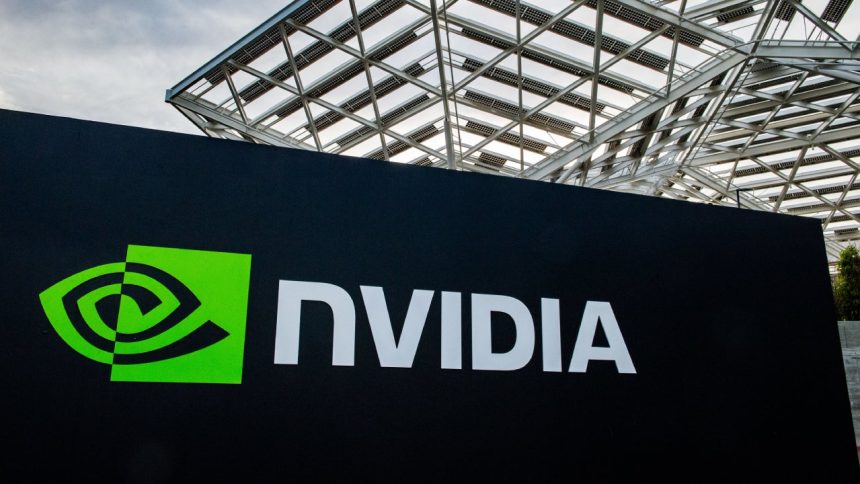picture alliance/Getty Images
The most valuable companies in the world have grown to impressive heights in recent years, with six publicly traded companies reaching market capitalizations of $1 trillion or more. All six companies come from the tech sector, with many offering products and services that consumers use every day. Several of them also made it onto Bankrate’s list of top performing stocks.
Nvidia recently took over the top spot as the world’s most valuable company, passing Microsoft and Apple, behind a business boom driven by demand for artificial intelligence (AI). Nvidia first joined the $1 trillion club in May 2023 and since then has added more than $2 trillion in additional market value.
Here are the largest publicly traded companies and members of the trillion-dollar club.
What is market capitalization and what does it mean?
A company’s market capitalization is equal to the total value of its outstanding shares. Market cap can be calculated by multiplying a company’s stock price by its shares outstanding. For example, a $10 stock with 1 billion shares outstanding would have a market cap of $10 billion.
Market cap is used to measure what a company is worth at a given time.
Trillion-dollar companies
*Market cap data as of June 18, 2024.
1. Nvidia (NVDA)
Semiconductor company Nvidia crossed the trillion dollar mark in May 2023, and quickly climbed to the top spot as investors bid up its shares in anticipation of a sustained boom in AI. Nvidia designs advanced chips that are used in AI systems and its shares are up more than 170 percent in 2024 as of June. It ended 2023 up a remarkable 246 percent from the start of the year. The company generated about $27 billion in revenue during its fiscal 2023.
- Market cap: $3.34 trillion
- Stock price: $135.58
2. Microsoft (MSFT)
Microsoft is best known for its suite of software offerings including Microsoft Office. The company generated nearly $212 billion in sales during its 2023 fiscal year. Microsoft closed its $69 billion acquisition of video game maker Activision Blizzard in October 2023.
- Market cap: $3.32 trillion
- Stock price: $446.34
3. Apple (AAPL)
Apple designs and makes a variety of consumer tech products and has one of the best known brands in the world. Apple generated more than $200 billion in iPhone sales during its fiscal 2023 and total sales reached $383 billion. Warren Buffett’s Berkshire Hathaway is one of the company’s largest shareholders and Buffett has repeatedly praised the tech giant’s business.
- Market cap: $3.29 trillion
- Stock price: $214.29
4. Alphabet (GOOG and GOOGL)
Alphabet is the parent company of search giant Google and generates the majority of its over $307 billion in revenue from online advertising. Google also has a cloud business, owns YouTube and has a variety of other ventures it classifies as “other bets.”
- Market cap: $2.17 trillion
- Stock price: $176.45
5. Amazon (AMZN)
Amazon is the largest online retailer in the world and has also built a sizable cloud business in Amazon Web Services. Amazon generated total sales of roughly $575 billion in 2023, including more than $90.8 billion from AWS. Amazon co-founder Jeff Bezos was the second-richest person in the world as of March 2024, according to Bloomberg.
- Market cap: $1.90 trillion
- Stock price: $182.81
6. Meta Platforms (META)
Social media giant Meta Platforms rejoined the trillion-dollar club in January 2024, but it’s no stranger to the list. Meta previously hit a $1 trillion market cap back in 2021, when it was still known as Facebook. Meta generated nearly $135 billion in total revenue in 2023 and its stock share price jumped nearly 189 percent that same year. In addition to being the parent company of Facebook, Meta also owns Instagram and WhatsUp, and is one of several tech giants betting big on artificial intelligence.
- Market cap: $1.27 trillion
- Stock price: $499.49
Note: Electric-vehicle maker Tesla previously crossed the $1 trillion mark, but its share price has since declined below that level.
Editorial Disclaimer: All investors are advised to conduct their own independent research into investment strategies before making an investment decision. In addition, investors are advised that past investment product performance is no guarantee of future price appreciation.
Read the full article here














